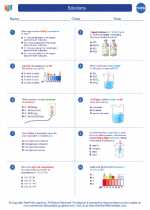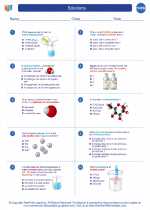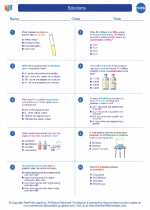Soil
Soil is a complex mixture of organic matter, minerals, gases, liquids, and organisms that form the top layer of the Earth's surface. It plays a crucial role in supporting plant life, regulating the water cycle, and providing habitats for a variety of organisms.
Composition of Soil
Soil is composed of several components:
- Mineral particles: These are the inorganic components of soil, including sand, silt, and clay.
- Organic matter: This includes decaying plant and animal material, as well as living organisms such as earthworms and microorganisms.
- Water: Soil contains varying amounts of water, which influences its physical and chemical properties.
- Air: Pores in the soil allow for the exchange of gases with the atmosphere.
Properties of Soil
Soil has several important properties that influence its suitability for supporting plant growth:
- Texture: Refers to the relative proportions of sand, silt, and clay in the soil. It affects water retention, aeration, and nutrient availability.
- Structure: The arrangement of soil particles into aggregates, which influences porosity and drainage.
- pH: The acidity or alkalinity of the soil, which affects nutrient availability to plants.
- Organic content: The amount of organic matter in the soil, which contributes to its fertility and ability to support diverse microbial life.
Formation of Soil
Soil is formed through the weathering of rocks and the decomposition of organic matter over time. Factors such as climate, topography, parent material, and biological activity influence the rate and type of soil formation in a given area.
Importance of Soil
Soil is vital for various ecological and human activities, including agriculture, forestry, and construction. It serves as a reservoir for nutrients, water, and air, and provides a medium for plant growth and nutrient cycling.
Soil Conservation
Due to the importance of soil, conservation practices such as erosion control, crop rotation, and organic farming are essential for maintaining soil health and productivity.
Study Guide
When studying the topic of soil, consider the following key points:
- Understand the composition and properties of soil, including its physical, chemical, and biological components.
- Explore the processes involved in soil formation and the factors that influence it.
- Examine the role of soil in supporting plant life, nutrient cycling, and water regulation.
- Learn about the importance of soil conservation and sustainable land management practices.
By mastering these concepts, you will gain a deeper understanding of the significance of soil in both natural and human-dominated ecosystems.
.


